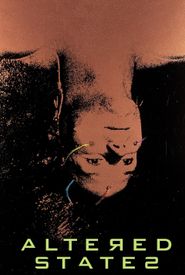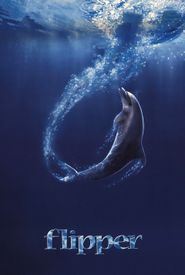Alan Shapiro, a multifaceted writer and director, embarked on a fascinating journey within the film industry, which was marked by a series of notable milestones, commencing with his academic tenure at New York University's esteemed film school.
During his time at the institution, Shapiro's initial student production, Briefly...Brian, garnered widespread recognition and accolades, ultimately culminating in a prestigious award. Specifically, the film won the coveted NYU best student film award in 1978, a testament to Shapiro's burgeoning talent.
This impressive achievement did not go unnoticed, as Briefly...Brian was subsequently selected to screen at some of the world's most renowned film festivals and institutions, including the prestigious Cannes film festival, New York's Museum of Modern Art, and PBS.
The recognition and acclaim garnered by Briefly...Brian proved instrumental in securing grant funding for Shapiro's subsequent project, Meeting Halfway, a second short film that would go on to achieve significant success. Meeting Halfway was acquired by the esteemed cable network, Showtime, a testament to Shapiro's growing reputation within the industry.
In conclusion, Alan Shapiro's early forays into the film industry, marked by the success of Briefly...Brian and Meeting Halfway, set the stage for a distinguished career as a writer and director, characterized by a string of notable achievements and collaborations with prominent organizations within the industry.
Noted filmmaker Shapiro's professional journey gained substantial momentum when Warner Brothers bestowed upon him a prestigious college scholarship and a coveted summer internship under the guidance of the illustrious director Ken Russell, collaborating on the critically acclaimed film Altered States.
Shapiro's impressive resume continued to grow as he wrote the screenplay for Stonybrook, a project commissioned by Warner Bros., and subsequently directed the award-winning Tiger Town for Disney, which boasted the esteemed actor Roy Scheider in a starring role.
In addition to his directorial efforts, Shapiro also took on the role of producer for Disney's The Blue Yonder, a film that featured notable actors Peter Coyote and Art Carney. Furthermore, Shapiro contributed his writing skills by penning the teleplay for NBC's Crossing the Mob, a television production that starred the talented Jason Bateman.
As time passed, Shapiro's multifaceted talents continued to flourish, as he penned, helmed, and masterminded Disney's enchanting holiday production, The Christmas Star, boasting a star-studded cast featuring the iconic Ed Asner and the inimitable Fred Gwynne.
This innovative endeavor piqued the interest of the illustrious Francis Coppola, who subsequently partnered with Shapiro to bring his writing and directing expertise to the forefront of the pilot episode of S. E. Hinton's renowned novel, The Outsiders, which made television history by premiering with the highest overnight ratings in Fox's storied past.
Subsequent to the completion of his work on the film "When Do We Eat?", Shapiro went on to pursue a variety of creative endeavors, one of which was the writing and directing of a feature film for Warner Bros., titled "The Crush". This project marked a significant milestone in Shapiro's career, as it served as the film debut of the talented young actress Alicia Silverstone, who would go on to achieve great success in the entertainment industry.
In addition to his work on "The Crush", Shapiro also wrote and directed another feature film for Universal Pictures, this one titled "Flipper". This project featured a talented cast, including Elijah Wood and Paul Hogan, and was released to the public.
Not only has Shapiro made a significant impact in the film industry, but he has also ventured into the realm of publishing, having contributed thought-provoking articles to esteemed publications such as Premiere and Written By magazines.
Furthermore, he has utilized his expertise to mentor aspiring writers through the WGA, fostering a new generation of talented storytellers.
In addition to these accomplishments, Shapiro has also shared his knowledge and skills by teaching directing at the prestigious USC Cinema Studies program, passing on his insights and techniques to a new crop of up-and-coming filmmakers.
By doing so, he has not only left his mark on the film industry but has also played a vital role in shaping the next wave of creative minds.


























